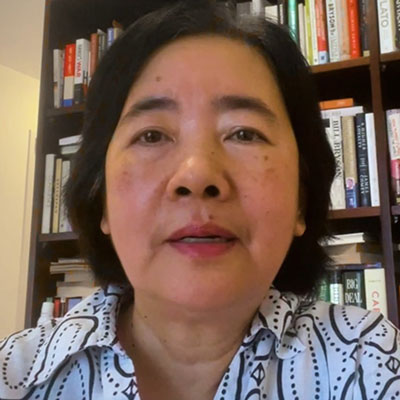
Thuy Dam
Non-Executive Director, Levanta RenewablesThuy Dam, current Non-Executive Director at Actis portfolio company Levanta Renewables, shares her career journey, experiences and why she’s increasingly optimistic about diversity and inclusion.
Tell us about your career to date – your career journey, the successes you’ve had and the challenges you’ve had to overcome.
I’m currently a Non-Executive Director at Levanta Renewables, an Actis-backed renewable energy platform operating across Southeast Asia, where I’m able to draw on my more than three decades of experience to drive the energy transition in the region.
My career truly kicked off when I founded and became partner of Investconsult, the first ever private consulting firm in Vietnam, from 1988 to 1994. Launching and managing a new business was full of challenges, of course, but incredibly rewarding and allowed me to learn a tremendous amount.
Following this experience, I moved on to work with ANZ from 1996 to 2012, first at ANZ Singapore as a Director of Project Finance and then as Regional Head of Mining, Oil and Gas, before becoming CEO of ANZ Vietnam.
I then worked for a few years as Chief Representative, Vietnam for NAB Vietnam before becoming Founding President of Fulbright University Vietnam in 2016.
Throughout my career, I’ve been guided by my interest in doing something that has never been done before, whether at an industry or country-wide level. Given this and my desire to see the projects I’ve worked on realised, I’ve tried to avoid jumping from role to role and have looked to stay in the roles I’ve held for a number of years in order to make a meaningful impact.
What does your role now entail on the board of Levanta Renewables?
As a Non-Executive Director on the Levanta board my role is twofold. Firstly, it is to provide specialist country or regional perspectives to best arm the business in its growth plans going forward. Second, like other Non-Executive Directors, I bring an external, outside view, which is critical in business to avoid group-think and remain in touch with the wider market.
In your view, why is inclusion and diversity important in the world of business?
In the early 2000s, when I ran the mining and oil and gas business for ANZ in Singapore, I was often the only woman in a meeting room full of men. I even remember an occasion where I went to give a speech at an international oil and gas conference where when I came into the room to deliver my speech most people thought I was just there to hand out documents as an assistant to a male speaker. The audience was pretty surprised when I turned out to be the one leading the conference speech. Assumptions such as this are problematic and act as a brake on progress in realising greater inclusion and diversity in the business world.
These are not just anecdotes – they have an impact. Having visible, female leadership enables more young women to rise through the ranks and have the career they wish to have. It also means businesses can benefit from a larger talent pool of course.
Thankfully the energy industry has evolved significantly on this front since the 2000s, even if more work still needs to be done. I can now see more women and a diverse array of people from different nationalities coming into the sector. There has been a net improvement in terms of diversity and inclusion.
What more needs to be done, at an industry level, to create opportunities for women and to drive equality between men and women in the world of work?
I think it’s incredibly important to showcase examples of successful women. In fact, it is vital not only to showcase them but also create networks and connections that allow women in leadership positions to mentor and collaborate with other women in the industry. This helps younger professionals see that anyone can rise to the top, no matter their gender or background, and also helps foster paths for them to climb the industry ladder.
Lucy Heintz at Actis is a great example of this. She’s very highly respected throughout the energy and infrastructure investing industry and has also done a lot to advance the careers of other women in the sector.
What’s the most valuable lesson you have learned in your career so far? And what advice would you give to a young professional embarking on their career?
I always advise to not spend too much time managing or planning your career. Most of the time, things do not unfold as you had imagined.
So what matters is that young professionals keep their minds open and prepare themselves to seize opportunities as they arise. They should also not be afraid to take risks.